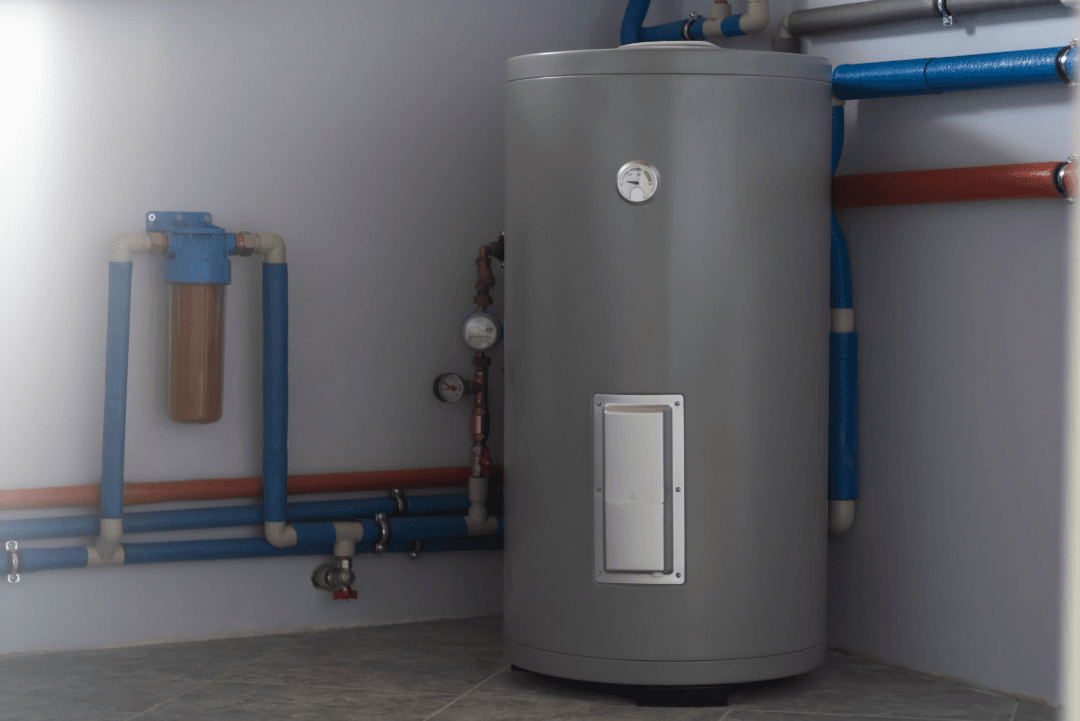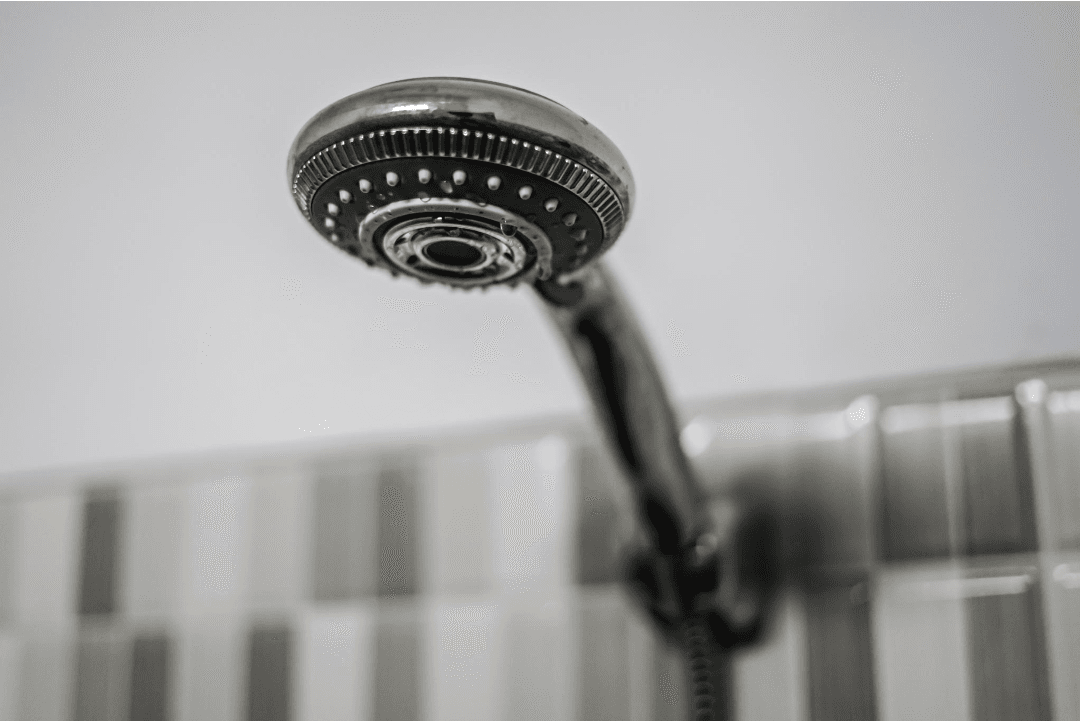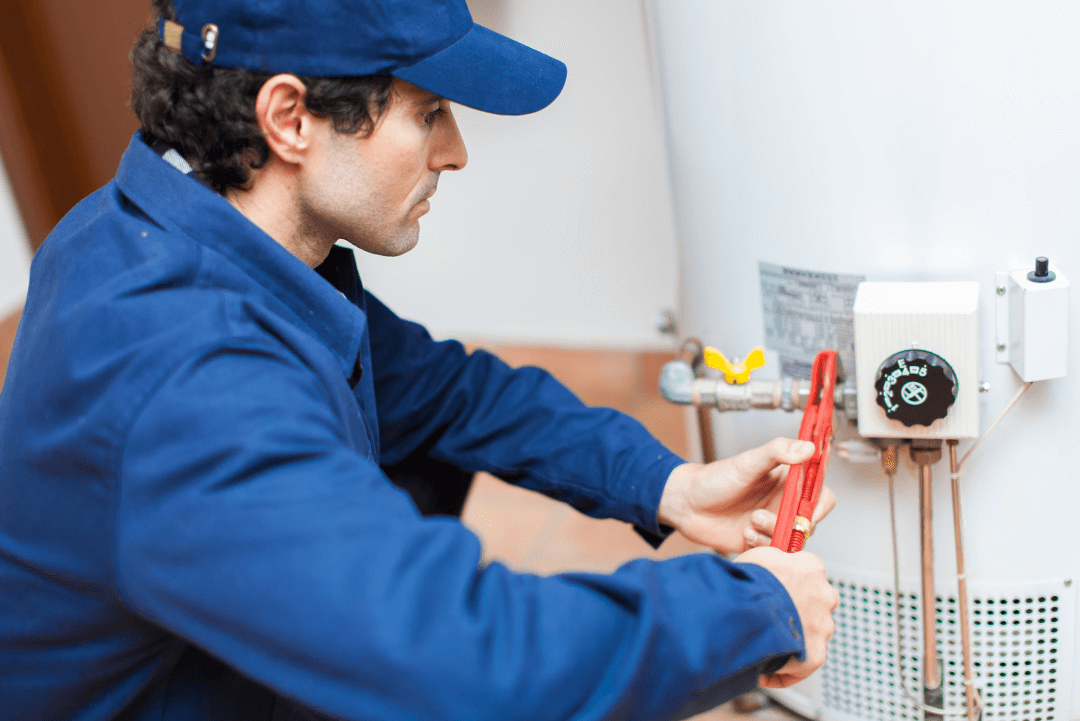Knowing how to choose the right water heater is important to ensure comfort, efficiency, and cost-effectiveness in your home or business. With various options available, from traditional tank models to modern tankless systems, the decision can be overwhelming. This guide simplifies the process by providing expert advice on selecting the perfect water heater to meet your needs. At Service by Scott, we’ve serviced Woodville, Texas, and Tyler County residents for over 30 years. As a family-owned business, we pride ourselves on delivering reliable, high-quality plumbing and maintenance services tailored to our community.
Our fully licensed team at Service by Scott handles everything from slab leak detection to comprehensive plumbing installations and emergency services. Whether upgrading a water heater for a small home or needing a solution for a commercial establishment, we have the expertise to guide you through every step. Trust our decades of experience and commitment to customer satisfaction as you navigate the important decision of choosing the right water heater.

Understanding Different Types of Water Heaters
When learning how to choose the right water heater, it’s essential to understand the various types available. Each type has its advantages and disadvantages, making them suitable for different needs and situations.
Tank Water Heaters
Tank water heaters are the most common type and store a large volume of hot water in a tank.
- Advantages: They are generally less expensive to purchase and install. They can provide a large supply of hot water instantly.
- Disadvantages: They take up more space and can run out of hot water if demand is high. They also have higher energy costs due to standby heat loss.
- Ideal Use Cases: Best for households with consistent, moderate to high hot water usage.
Tankless Water Heaters
Tankless water heaters, also known as on-demand water heaters, heat water only when it’s needed.
- Pros: They are energy-efficient as they eliminate standby heat loss. They take up less space and provide a continuous supply of hot water.
- Cons: Higher upfront costs and may require upgrades to existing plumbing or electrical systems.
- Suitable Applications: Ideal for homes with limited space or those looking for energy efficiency and endless hot water supply.
Heat Pump Water Heaters
Heat pump water heaters use electricity to move heat from the air or ground to heat the water.
- Benefits: They are highly energy-efficient and can reduce energy bills significantly.
- Drawbacks: Higher initial cost and they require more space and a specific temperature range to operate efficiently.
- Best Scenarios for Use: Suitable for warm climates and for households looking to reduce their environmental impact.
Solar Water Heaters
Solar water heaters use solar panels to absorb heat from the sun and transfer it to the water.
- How They Work: They use renewable energy, which can significantly lower utility bills.
- Environmental Impact and Savings: Very eco-friendly, though effectiveness depends on the climate and sunlight availability.
- When to Consider: Best for environmentally conscious users in sunny regions.
Condensing Water Heaters
Condensing water heaters are similar to traditional tank water heaters but are more energy-efficient.
- Functionality and Efficiency: They capture and reuse the heat that would otherwise escape through the flue, making them highly efficient.
- When to Consider: Ideal for homes with high hot water demand and where energy efficiency is a priority.
By understanding these different types of water heaters, you can better decide how to choose the right water heater for your specific needs. Each type offers unique benefits and considerations, ensuring there is a suitable option for every household or business.
Assessing Your Household’s Hot Water Needs
Determining your household’s hot water needs is a crucial step in learning how to choose the right water heater. By accurately assessing your requirements, you can ensure a consistent supply of hot water without unnecessary energy waste or costs.
Calculating Hot Water Demand
Understanding your hot water demand starts with evaluating your peak hour usage. This involves calculating the total amount of hot water your household uses during the busiest hour of the day. Consider activities such as showers, running the dishwasher, and doing laundry, which all contribute to your peak hour demand. By adding up the gallons used for each activity, you can determine the capacity your water heater needs to meet.
The number of occupants in your home also significantly affects hot water usage. More people generally mean higher demand. For example, a family of four will require more hot water compared to a couple. Assessing these factors will help you choose a water heater with an appropriate capacity and performance to handle your household’s needs.
Considering Future Needs
When choosing a water heater, it’s important to think long-term. Consider any potential changes that might increase your hot water demand in the future. For instance, if you plan to grow your family or anticipate needing additional bathrooms or appliances, these factors should influence your decision.
Selecting a water heater that can accommodate future needs can save you from needing to upgrade again later. By planning ahead, you ensure that your water heater remains sufficient and efficient for years to come, providing reliable hot water as your household evolves.

Energy Efficiency and Cost Considerations
When learning to choose the right water heater, energy efficiency, and cost are critical factors to consider. Not only do these elements impact your utility bills, but they also influence the environmental footprint of your household. By evaluating energy ratings and understanding the associated costs, you can make a more informed and sustainable choice.
Energy Efficiency Ratings
Water heaters come with various energy efficiency ratings that help you compare their performance. The Energy Factor (EF) and Uniform Energy Factor (UEF) are common metrics used to measure a water heater’s efficiency. A higher EF or UEF rating indicates a more efficient unit, meaning it converts more energy into hot water and wastes less.
Choosing a water heater with a high energy efficiency rating can lead to significant savings on your energy bills over time. Additionally, energy-efficient models often qualify for government rebates and incentives, further reducing the overall cost of the unit. By prioritizing energy efficiency, you can enjoy both financial and environmental benefits.
Cost Analysis
When considering the cost of a new water heater, it’s essential to look beyond the initial purchase price. While high-efficiency models may have a higher upfront cost, they can save you money in the long run through reduced energy consumption. Calculate the potential savings on your utility bills to see if the higher initial investment is worthwhile.
Utility bill impact is another crucial aspect to consider. Less efficient water heaters may be cheaper initially, but they often result in higher monthly energy costs. Choosing a more efficient model can lower your ongoing expenses, making the overall investment more economical over time. Balancing the initial costs with long-term savings helps ensure you make a financially sound decision.
Sizing Your Water Heater Correctly
Ensuring your water heater is properly sized is crucial to meeting your household’s hot water demands efficiently. By understanding the factors that influence sizing and following guidelines tailored to different types of water heaters, you can avoid issues like insufficient hot water or unnecessary energy consumption.
Importance of Proper Sizing
Proper sizing of your water heater ensures you have enough hot water to meet your daily needs without excessive energy consumption. A water heater that is too small may struggle to keep up with demand, leading to cold showers or delays in hot water availability. On the other hand, an oversized water heater can result in wasted energy as it heats more water than necessary.
For tank water heaters, sizing is typically determined by the First Hour Rating (FHR), which indicates how much hot water the unit can deliver in the first hour of use. Factors such as the number of occupants and peak hour usage help calculate the appropriate FHR for your household. This ensures you have sufficient hot water during times of high demand, such as mornings or evenings.
Guidelines for Sizing Tank and Tankless Water Heaters
Tankless water heaters are sized based on their flow rate and the temperature rise needed. Flow rate refers to the amount of hot water the unit can deliver per minute. Calculate your household’s peak hot water demand and the temperature rise required (the difference between incoming cold water temperature and desired hot water temperature). This helps determine the flow rate needed from the tankless unit to meet your needs effectively.
By following these sizing guidelines, you can ensure your water heater operates efficiently and reliably, providing ample hot water whenever you need it. Proper sizing not only enhances comfort but also contributes to energy savings by minimizing wasted heat and optimizing performance based on your specific usage patterns.

Installation and Maintenance Requirements
Ensuring your water heater is installed correctly and maintained properly is essential for maximizing its lifespan and efficiency. Professional installation and regular maintenance can also help you choose the right water heater for your needs, ensuring optimal performance and reliability.
Professional Installation Benefits
Opting for professional installation, such as the services offered by Service by Scott, brings several advantages. Our licensed technicians have the expertise and experience to install water heaters safely and according to local building codes. Proper installation ensures the unit functions efficiently and prevents potential safety hazards such as gas leaks or electrical issues.
Our team at Service by Scott can assess your household’s hot water needs and recommend the best type and size of the water heater. Whether you’re considering a tank water heater for its affordability and reliability or a tankless water heater for its space-saving and energy-efficient features, we provide tailored advice to help you make an informed decision.
Maintenance Tips
Regular maintenance is key to extending the life of your water heater and maintaining its efficiency. Service by Scott offers comprehensive maintenance services to keep your water heater in top condition. This includes inspecting the unit for leaks, and sediment buildup, and checking the heating elements or burner for optimal performance. Our scheduled maintenance plans ensure your water heater operates at peak efficiency, saving you money on energy bills and preventing unexpected breakdowns.
Whether you’re installing a new water heater or need routine maintenance for your existing unit, Service by Scott is here to help. Trust our expertise and commitment to quality service as you choose the right water heater for your home or business.
Environmental Impact and Sustainability
Considering the environmental impact of your water heater choice is increasingly important for eco-conscious consumers. Different types of water heaters vary in their energy efficiency and environmental footprint, making it essential to choose an option that aligns with your sustainability goals.
Comparing Environmental Impacts
Traditional water heaters, especially older models, can have a significant environmental impact due to higher energy consumption and greenhouse gas emissions. In contrast, modern energy-efficient models, such as heat pump and solar water heaters, offer greener alternatives. Heat pump water heaters use electricity to transfer heat from the surrounding air or ground, consuming less energy than conventional models. Solar water heaters harness energy from the sun, reducing reliance on fossil fuels and lowering carbon emissions.
Choosing Eco-Friendly Options
Opting for eco-friendly water heaters not only reduces your carbon footprint but can also result in long-term savings on utility bills. Heat pump and solar water heaters are ideal choices for environmentally conscious consumers looking to minimize their impact on the planet. These systems not only use renewable energy sources but also qualify for government incentives and rebates, further enhancing their affordability and environmental benefits.
Service by Scott can help you explore eco-friendly options and determine the best fit for your home or business. Our knowledgeable team can guide you in selecting a water heater that balances environmental sustainability with practical considerations such as upfront costs and installation requirements. By choosing a water heater that aligns with your environmental values, you contribute to a greener future while enjoying reliable hot water for years to come.

Cost and Budgeting
When planning to choose the right water heater, understanding the costs involved is crucial to making a practical and sustainable decision. The total cost includes not only the initial purchase price of the water heater but also installation expenses, operational costs, and potential long-term savings.
Initial Purchase Price
The initial cost of a water heater varies depending on the type and model you choose. Traditional tank water heaters generally have a lower upfront cost compared to tankless or heat pump models. However, it’s essential to consider the long-term savings in energy costs that more efficient models can provide.
Installation Costs
In addition to the purchase price, installation costs should be factored into your budget. Professional installation, such as the services offered by Service by Scott, ensures your water heater is installed safely and according to local codes. Installation costs can vary based on the complexity of the installation, any necessary upgrades to your plumbing or electrical systems, and the type of water heater you choose.
Long-Term Costs
When budgeting for a water heater, consider the long-term costs associated with energy consumption, maintenance, and potential repairs. Energy-efficient models may have a higher initial cost but can lead to significant savings on your utility bills over time. Regular maintenance, also available through Service by Scott, helps extend the life of your water heater and minimize unexpected repair expenses.
Financing Options
To assist customers in managing their budget, Service by Scott offers financing options. Financing allows you to spread out the cost of your new water heater over time, making it more affordable to invest in a higher-efficiency model that reduces long-term energy expenses. Our flexible financing plans are designed to fit your financial needs, ensuring you can choose a water heater that meets your budget and efficiency requirements.
By carefully evaluating the upfront and long-term costs of different water heater options, and considering financing as a viable option, you can make an informed decision that ensures efficient and reliable hot water for your home or business.
Conclusion: Choose the Right Water Heater with Service by Scott
Choosing the right water heater is crucial for maintaining comfort, efficiency, and cost-effectiveness in your home or business. By understanding the different types of water heaters available, accurately assessing your household’s specific hot water requirements, and considering factors like energy efficiency and budgeting, you empower yourself to make a well-informed decision.
With over 30 years of dedicated service to Woodville, Texas, and surrounding communities, Service by Scott is your trusted partner in choosing the right water heater. Whether you’re upgrading to a more energy-efficient model, needing professional installation services, or seeking ongoing maintenance, our expert team is here to assist.
Contact Service by Scott today to discuss how we can help you choose the right water heater for your needs. Benefit from our reliable service and expertise to ensure your home or business enjoys a dependable supply of hot water. Trust Service by Scott for quality solutions tailored to your preferences and budget.
FAQs
What factors should I consider when choosing a water heater?
When choosing a water heater, consider factors such as your household’s hot water usage, energy efficiency ratings of different models, available space for installation, and your budget for upfront costs and long-term savings on utility bills.
What are the advantages of a tankless water heater?
Tankless water heaters provide on-demand hot water, which means they only heat water as you need it, leading to energy savings and never running out of hot water. They also take up less space compared to traditional tank water heaters.
How do I know if I need to upgrade my water heater?
Consider upgrading your water heater if you frequently run out of hot water, notice a decrease in efficiency or increased energy bills, or if your current unit is nearing the end of its lifespan (typically 10-15 years for tank water heaters and longer for tankless models).
What maintenance does a water heater require?
Regular maintenance includes flushing the tank to remove sediment buildup, checking the anode rod, inspecting for leaks or corrosion, and ensuring the thermostat is functioning properly. Professional maintenance services, like those offered by Service by Scott, can help extend the life of your water heater.
Does Service by Scott offer financing options for water heater installations?
Yes, Service by Scott offers financing options to help manage upfront costs for water heater installations. Financing allows you to spread payments over time, making it more affordable to choose a high-efficiency water heater that meets your needs.

